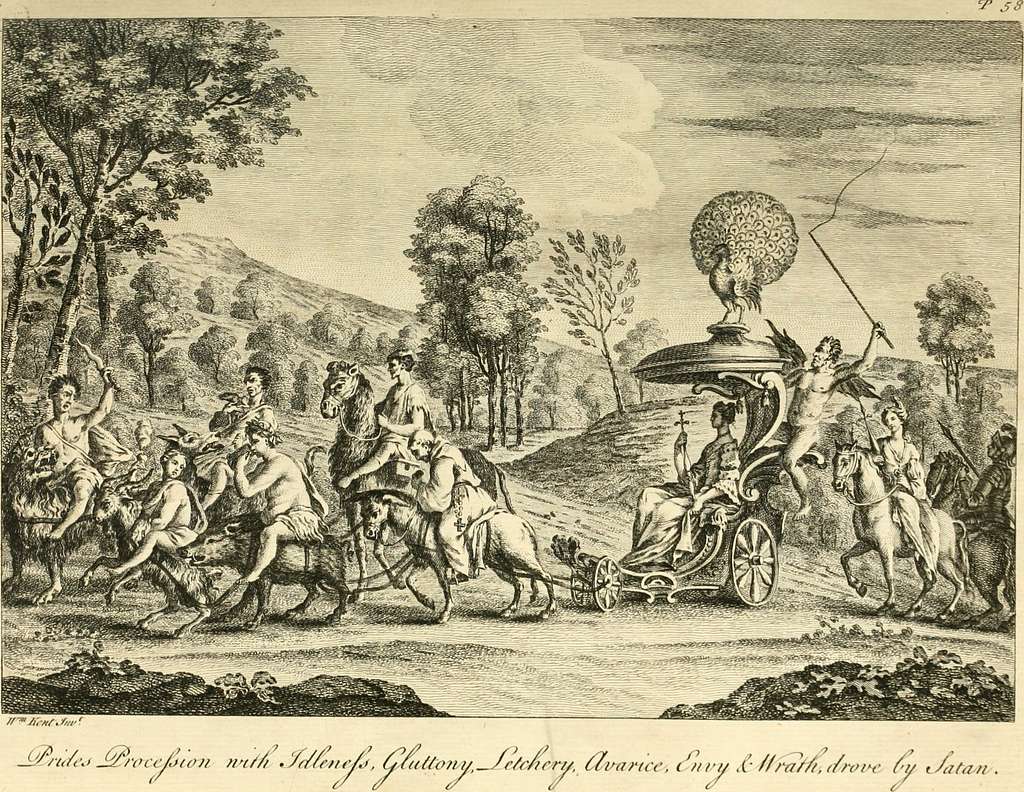Last week we posted The Authority For Liberal Theology, on how liberal theologians consider “modern thought” to be more authoritative than the Bible.
So I delved into Scripture a little to see what the Bible says about conforming to the spirit of the age. I was struck especially by this passage, 2 Timothy 3:1-5 (NKJV), which lists vices that will be signs of the last days and that are uncomfortably common today. My punctuation:
But know this, that in the last days perilous times will come: For men will be:
lovers of themselves, [Check!]
lovers of money, [Check!]
boasters, [Check!]
proud, [Check!]
blasphemers, [Check!]
disobedient to parents, [Check!]
unthankful, [Check!]
unholy, [Check!]
unloving, [Check!]
unforgiving, [Check!]
slanderers, [Check!]
without self-control, [Check!]
brutal, [Check!]
despisers of good, [Check!]
traitors, [Check!]
headstrong, [Check!]
haughty, [Check!]
lovers of pleasure rather than lovers of God, [Check!]
having a form of godliness but denying its power. [Check!]
And from such people turn away!
Yes, I know that these 19 perils can be found in every age and that we have been in the “last days” ever since Pentecost so that Christ could come at any time. But these seem especially acute today.
It is interesting what is listed and what is not listed. There is no mention of distinctly sexual sins, what we tend to think of when we claim that morality has declined from the olden days. “Without self control” and “lovers of pleasure rather than lovers of God” can certainly include sexual transgressions, but none are mentioned as such. Probably the modern world, for all of its depravity, is not nearly so bad as the ancient Roman Empire, with its rampant and quite socially acceptable hetero- and homo-sexual use of slaves.
Nor are there any political vices, which both today’s progressives and conservatives often fixate on. What the New King James Translation renders here as “traitors” is προδόται, meaning “betrayers,” not necessarily in the national sense. There are certainly many betrayals in families, businesses, friendships, and even churches today.
The list does, however, include sin within the family: “Disobedient to parents.” Also religious sins: “blasphemers,” “unholy,” “lovers of pleasure rather than lovers of God,” and “having a form of godliness but denying its power.”
That last transgression is intriguing: “Having the form of godliness”–on the outside observing all of the forms, but not believing godliness has any power. I’m thinking of liberal Episcopalians or liberal Lutherans who perform the liturgy beautifully, but who don’t believe in its content.
A big difference between today’s 19 perils and the earlier versions is that today we often think of some of these vices as good things. Lovers of yourself? Self-love is hailed as a virtue we should cultivate, the goal of therapy and the power of positive thinking. Pride? We should take pride in ourselves! And yet, in earlier times, pride was one of the Seven Deadly Sins, indeed, the worst of the Seven Deadly Sins, the one that drives all of the others.
In the Fairie Queene, that great Christian allegory, Spencer depicts Pride as the driver of the chariot, which is pulled by the other six. This is because greed, lust, envy, gluttony, wrath, and sloth are all manifestations of that pride that thinks the rules don’t apply to me because I am superior to everyone else, which is the sin of Satan and of Adam and Eve, who sought to make themselves gods. Today, we stage “Pride Parades” to celebrate homosexuality. Ironically, celebrating “pride” is probably a worse transgression than celebrating the sins of the flesh.
St. Paul says after a similar catalog of unrighteous acts, the products of “a debased mind to do what ought not to be done,” he underscores what might be even worse: “ Though they know God’s righteous decree that those who practice such things deserve to die, they not only do them but give approval to those who practice them” (Romans 1:32).
We must stay away from people like that, not emulate them, much less take them as our authorities whom we obey.
The end is near.
Do you see yourself in this list of how people will be in those “perilous times”? I see myself in high relief.
But the chapter continues. It describes more about the coming madness, including an indictment of those “always learning and never able to come to the knowledge of the truth” (3:7), a spot-on description of today’s intellectual climate. The chapter builds to a discussion of the alternative, “the Holy Scriptures, which are able to make you wise for salvation through faith which is in Christ Jesus.” (3:15).
The original Pride parade:
Pride’s Procession, illustration from Sir Edmund Spenser’s The Fairy Queene by Thomas Birch (1751) via GetArchive, Public Domain














